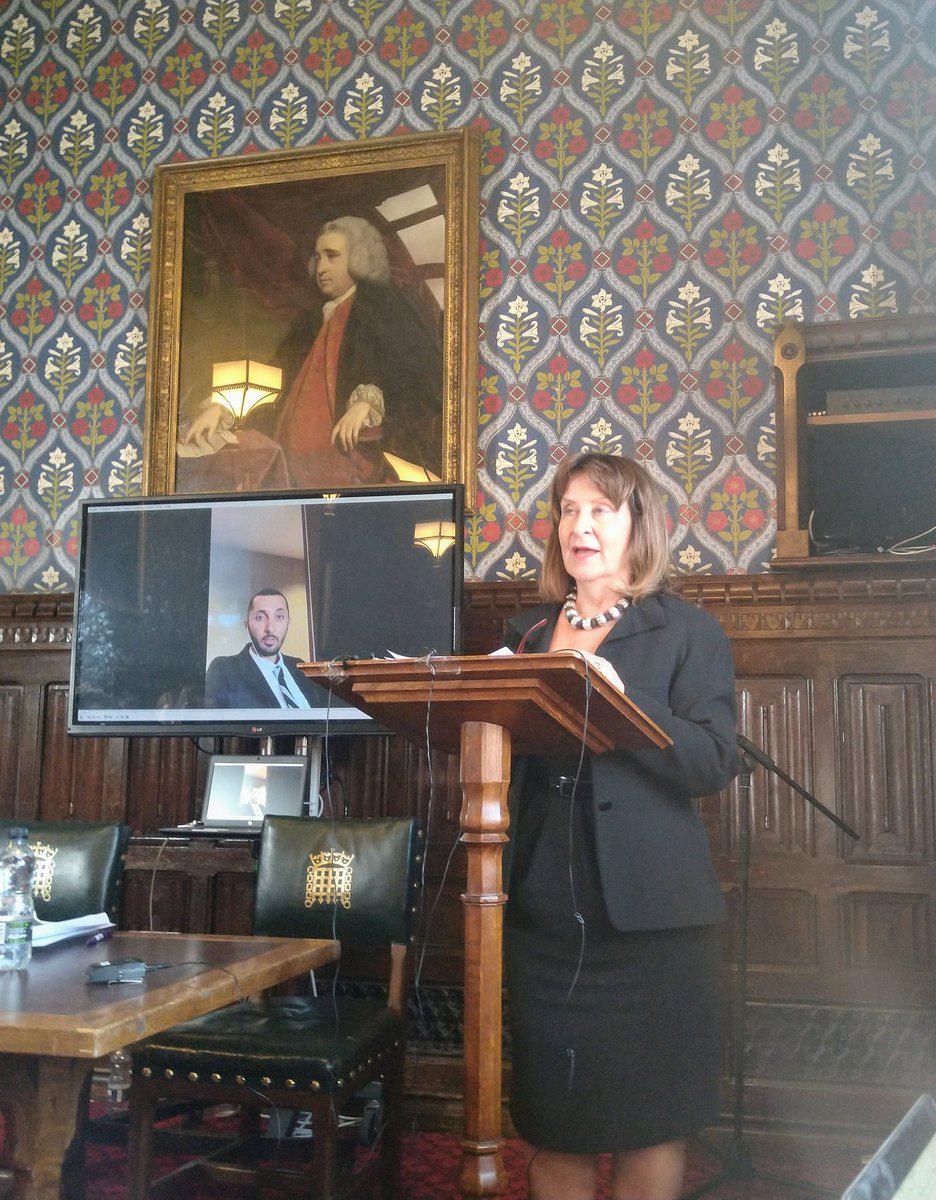
Barrister, baroness, and former House of Lords member Helena Kennedy released a report prepared in coordination with human rights groups on the illegal death penalty in the Kingdom of Saudi Arabia that expressed her concern about the grave violations involved inthispunishment’s application.
Titled “A Perverse and Ominous Enterprise: The Death Penalty and Illegal Executions in Saudi Arabia,” the report was prepared in coordination with a number of non-governmental organizations after speaking with the family members of people who have been executed or are currently facing execution and was released on 29 July 2019 at the House of Commons in London.
Between the beginning of 2019 and 20 July 2019, the report found that the Saudi government hadcarried out 134 death sentences, including the mass execution of 37 peoplein April 2019 who had suffered solitary confinement, torture, and unfair trials during their lengthy detainments. Six of these individuals were children at the time of their alleged crimes.
The report, which emphasized that Saudi Arabia’s use of the death penalty has conspicuously increased since 2015, raised particular concern over the fact people facing execution did not necessarily commit a crime punishable by death, which makes the sentences illegal. The report also makes clear that utilizing this sentence against minors violates Saudi and international law.
The barrister noted in her report that as of 20 July, the cases of 24 people facing execution whose trials are at various stages were being observed. According to statistics corroborated by the European-Saudi Organisation for Human Rights (ESOHR), three of these individuals are minors while someare accused of demonstrating and other non-violent charges. The report, which indicated that there is a beliefthat there are many at risk of being executed about whom there is no information, also explained that most of the executions are beheadings by sword conducted in public places and that the bodies are rarely returned to families.
The report concluded with numerous recommendations, including:
- Immediately send an independent, fact-finding delegation to Saudi Arabia to investigate the reports’ findings and guarantee the safety of those indanger.
- Exert diplomatic pressure on Saudi Arabia with regard to these violations. If Saudi Arabia does not comply with the report’s recommendations, all members of the G-20, including the European Union, should be pressured to refuse to participate in the G-20 summit scheduled to be held in Riyadh in November 2020.
- Impose a full moratorium on the use of the death penalty.
- Call upon Saudi Arabia to publish complete and up-to-date information about the number and identities of people currently facing executionandto fully explain why the death penalty was imposed.
- Release the bodies of the deceased and hand them over to their families.
- Have the United Nations Human Rights Council (UNHRC) immediately intervene andinvestigate these violations and considersuspending Saudi Arabia’sUNHRC membership.
The ESOHR welcomes the report and affirms the importance of Baroness Kennedy’s call for sending an international, fact-finding delegation to Saudi Arabia that, as per the general guidelines set forth in her report, is:
- Politically neutral, like the International Committee of the Red Cross, and undertakes the investigatory mission as outlined in the report while working to guarantee the safety and well-being of those facing execution and providing a report on their statuses.
- Granted immediate and unrestrictedaccess toeveryone at risk of being executed with a guarantee that the fact-finding delegation can conduct its work without obstruction.
It is worth nothing that during the May 2017 visit of the Special Rapporteur onthe promotion and protection ofhuman rights and fundamentalfreedoms while countering terrorism, Saudi officials “prevented him from speaking with prisoners in private, taking him instead to carefully selected showcase facilities.”
As mentioned in the Baroness’ report, this deceptive conductmust notbe repeated during any fact-finding mission.
The ESOHR believes that the best way to raise global public opinion’s awareness about the violations and pressure the Saudi government to stop them may be through issuing reports based upon facts and collaboration with independent and non-governmental entities that do not rely upon Saudi government propaganda nor the misleading information it publishes.
